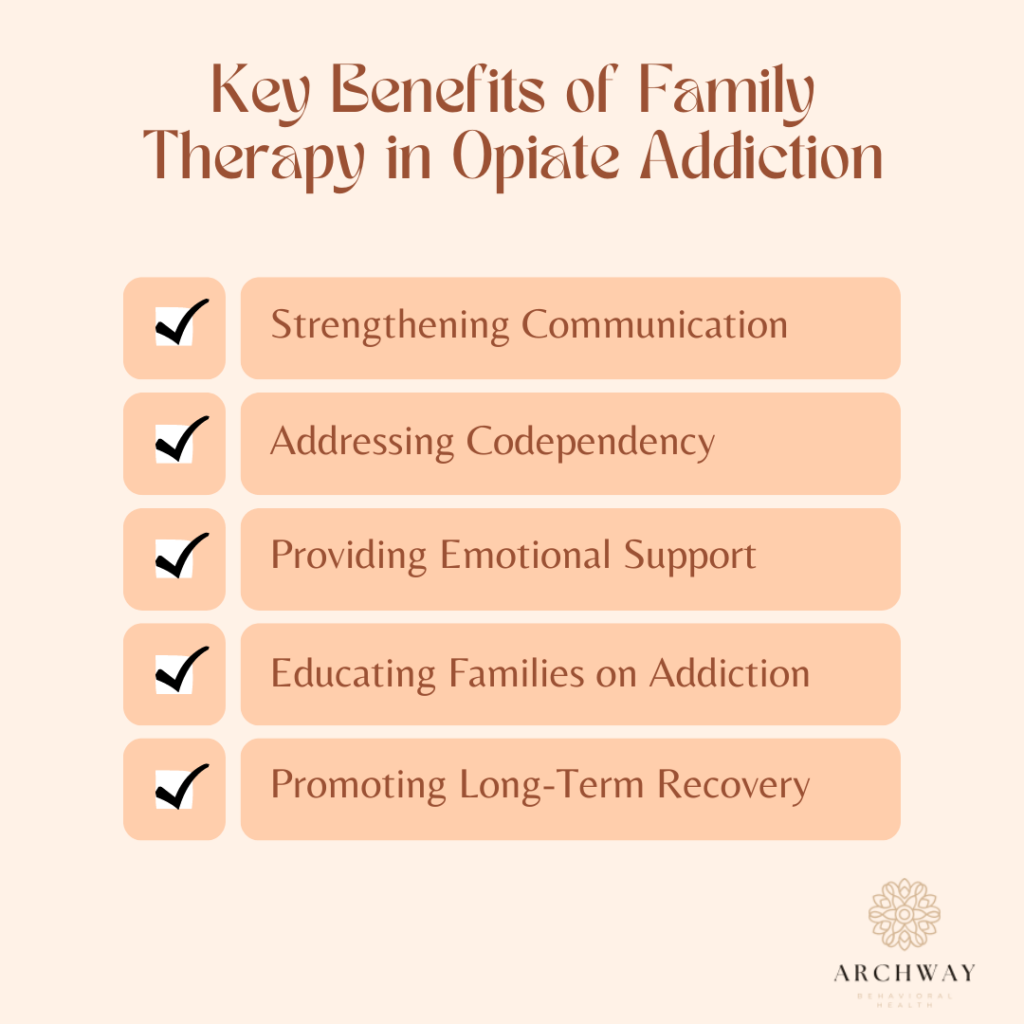Dependence is a complex condition that extends its impact beyond the individual to affect their entire family. Effective treatment often necessitates a comprehensive approach that includes not only individual therapy but also family involvement. Family therapy is a pivotal component of this broader treatment strategy, addressing the intricate dynamics within families and fostering an environment conducive to recovery.
Strengthening Family Communication
A major benefit of incorporating family therapy into dependence treatment is its focus on enhancing communication among family members. Dependence frequently causes individuals to withdraw from their loved ones, leading to strained relationships and misunderstandings. Family therapy creates a structured environment where family members can openly express their feelings and concerns. This open communication helps bridge gaps, making the person struggling with dependence feel more supported and understood, which is crucial for their healing process as well.
Constructively Addressing Family Conflicts
The challenges of dependence often bring various conflicts to the surface, such as financial burdens, legal issues, and interpersonal tensions. It offers a safe space for family members to confront and work through their conflicts, fostering the development of strategies for resolution. This collaborative problem-solving approach not only helps in managing current issues but also strengthens family relationships, which can be instrumental in reducing the risk of relapse.
Educating Family Members on Dependence
Understanding the nature of dependence is vital for family members, who may otherwise view it through the lens of personal failure rather than as a medical condition with multiple influencing factors. Family therapy serves an educational role by explaining the scientific and psychological aspects of dependence. This knowledge helps dispel myths, reduce stigma, and cultivate empathy among family members. With a clearer understanding, families are better equipped to support their loved one through the recovery process.
Promoting Healthy Family Dynamics
Substance abuse can disrupt family dynamics, creating unhealthy patterns and relationships. Family therapy addresses these disruptions by fostering healthier interactions within the family. By promoting these positive changes, family therapy helps restore balance within the family, creating a nurturing environment that supports the individual’s recovery.
Addressing Co-occurring Mental Health Issues
Often, the dependence comes with mental health issues like trauma, anxiety or depression. Family therapy plays a crucial role in addressing these co-occurring conditions. By integrating mental health support into the overall treatment plan, family therapy offers a comprehensive approach that tackles both dependence and its underlying mental health challenges. This will give you the necessary tools to improve your mental health and help you recover smoothly in the long run.
Embracing the Whole Family in the Recovery Process
By involving all family members in the treatment process, it ensures that everyone plays a role in the recovery journey. This collective involvement enhances the support network surrounding the individual, making it easier to navigate challenges and reduce the likelihood of relapse. Additionally, family therapy provides support to family members who may be dealing with their own issues, promoting overall wellness within the family unit.
Key Benefits of Family Therapy in Dependence Treatment
- Strengthening Communication: Dependence can erode trust and communication within families. Family therapy fosters open dialogue, helping members express their feelings and concerns in a safe environment. Improved communication can prevent misunderstandings and help families work together in supporting the person in recovery.
- Addressing Codependency and Enabling Behaviors: In some cases, family members may unknowingly contribute to the dependence by enabling behaviors or becoming overly involved in the addict’s life. Family therapy identifies these unhealthy dynamics and helps family members develop healthier boundaries.
- Providing Emotional Support: The road to recovery can be challenging, and having the support of family is invaluable. Family therapy helps relatives understand the emotional and psychological toll of dependence and how they can offer encouragement and stability without feeling overwhelmed.
- Educating Families on Dependence: Family therapy offers education on the nature of dependence, helping relatives better understand the physiological, emotional, and psychological components of dependence. This awareness fosters empathy and reduces stigma, making it easier for families to provide nonjudgmental support.
- Promoting Long-Term Recovery: A supportive and educated family can serve as a vital foundation for long-term recovery. Family members can help their loved ones stay accountable, recognize early signs of relapse, and provide a safety net as they navigate post-treatment life.
Conclusion
Family therapy offers a critical approach to treatment by improving communication, resolving conflicts, educating family members, and fostering positive family dynamics. This inclusive and comprehensive approach supports the individual’s recovery while promoting healing and understanding within the family. By engaging the entire family in the recovery process, family therapy significantly contributes to achieving lasting and successful outcomes in the treatment of Partial Hospitalization Program and Intensive Outpatient Program.
Got a question about dependence treatment or know more about mental health treatment programs? Feel free to schedule a free counseling session with our team right away. Reach out today at (888) 488-4103 and take the first step towards hope and healing.
FAQs on Integral Role of Family Therapy in Treating Dependence
Can family therapy help with other types of dependence, besides dependence?
Yes, family therapy can be beneficial for treating dependence to various substances, including alcohol, stimulants, and depressants.
Is family therapy suitable for all families?
Family therapy may not be suitable for all families. It is important to discuss your individual needs and circumstances with a mental health professional to determine if family therapy is right for you.
How long does family therapy typically take?
The length of family therapy can vary depending on the specific needs of the family. Some families may benefit from a few sessions, while others may require more extended treatment.
Can family therapy be combined with other forms of treatment?
Yes, family therapy can be combined with other forms of treatment, such as individual therapy, group therapy, or medication-assisted treatment.



